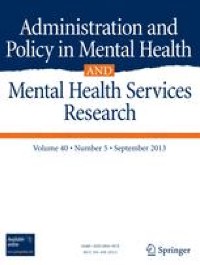Abstract
Purpose
Peer providers represent a growing sector of the U.S. workforce, yet guidance is needed on best practices for adapting behavioral health interventions for peer delivery.
Methods
We utilized the Framework for Reporting Adaptations and Modifications to Evidence-based interventions (FRAME; Wiltsey Stirman et al. 2013, 2019) to describe how we systematically adapted Skills Training in Affective and Interpersonal Regulation (STAIR) for posttraumatic stress disorder (PTSD) for peer delivery. Our process was iterative and relied on engagement of multiple stakeholders, including a work group of organizational leaders (N = 5), peer interventionists (N = 4), intervention experts (N = 2), and trial participants (N = 18). The FRAME was used to guide rapid coding across multiple data sources, including researcher field notes, meeting minutes, and intervention manual documents, and content analysis of semi-structured interviews with peer interventionists and trial participants.
Results
Phase 1 (pre-trial) focused on modifications for fit with the local context and peer model. Key modifications focused on improving intervention design and packaging, removing clinical and stigmatizing language, and addressing peer interventionist training gaps. We used a hybrid approach to delivery, whereby we integrated peer model principles (self-disclosure, mutuality) into a directive approach. Phase 2 (trial) included reactive fidelity-consistent adaptations, such as additional educational resources. Phase 3 (post-trial) focused on adaptations to support roll-out of the intervention at the peer organization (e.g., group format).
Conclusion
Our stakeholder-engaged process may serve as a helpful exemplar to others tailoring interventions for peer delivery. Future research is needed to understand the role of stakeholder engagement and adaptation in implementation success.



Δεν υπάρχουν σχόλια:
Δημοσίευση σχολίου